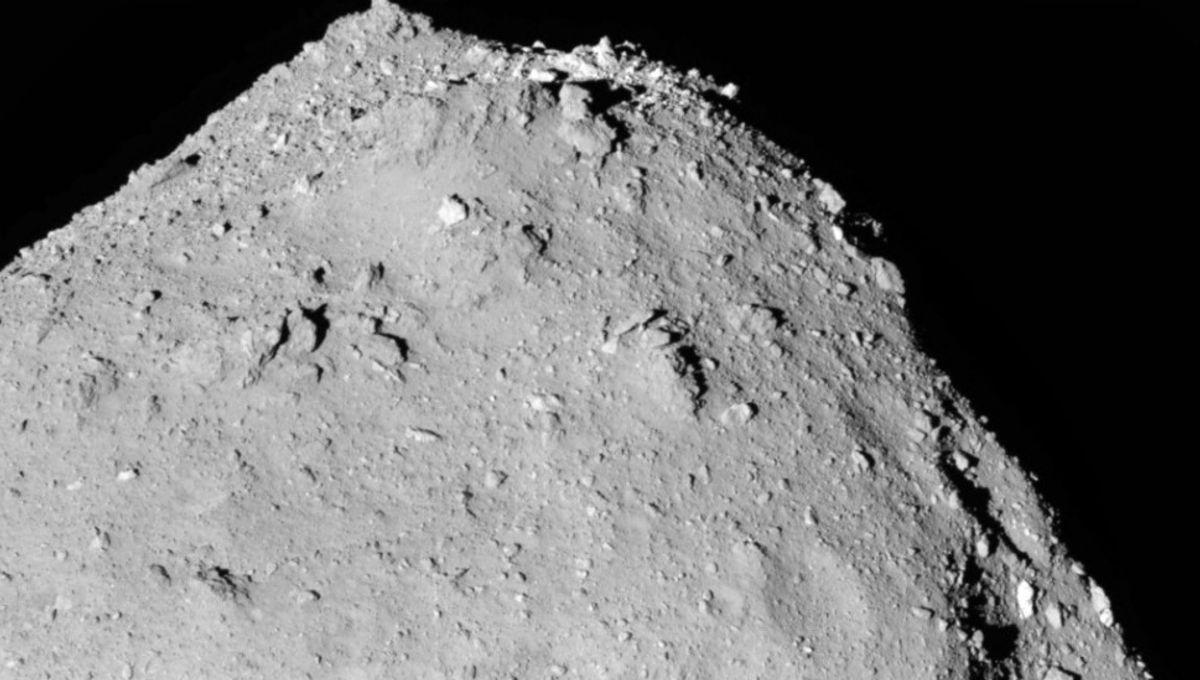-
Feed de Notícias
- EXPLORAR
-
Páginas
-
Blogs
-
Fóruns
Ancient Asteroid Ripped Apart In Collision Had Flowing Water

Ancient Asteroid Ripped Apart In Collision Had Flowing Water
The parent world of asteroid Ryugu, the space rock visited by the Japanese mission Hayabusa2, had flowing water for over a billion years. This was not at all expected when the spacecraft collected and brought back the sample, and it adds to the record of evidence that suggests a much more peculiar early Solar System.
The rest of this article is behind a paywall. Please sign in or subscribe to access the full content. Ryugu measures approximately 900 meters (3,000 feet) in diameter, and it looks like a spinning top. It’s a rubble pile, made of mostly small rocks and the occasional larger boulder. The Japanese Space Agency (JAXA) sent a probe to collect surface and subsurface samples of the asteroid, and it has revealed the presence of organic material and much more. The latest discovery used the ratio of two radioactive elements, lutetium (Lu) and hafnium (Hf), which can be used as a clock for geological activity. The analysis suggests that the lutetium was washed away from the rocks. The most likely culprit for that fluid is water. “We thought that Ryugu’s chemical record would resemble certain meteorites already studied on Earth,” Associate Professor Tsuyoshi Iizuka from the Department of Earth and Planetary Science at the University of Tokyo said in a statement. “But the results were completely different. This meant we had to carefully rule out other possible explanations and eventually concluded that the Lu-Hf system was disturbed by late fluid flow.” “The most likely trigger was an impact on a larger asteroid parent of Ryugu, which fractured the rock and melted buried ice, allowing liquid water to percolate through the body. It was a genuine surprise! This impact event may be also responsible for the disruption of the parent body to form Ryugu.” Just recently, research came out linking asteroid Ryugu with asteroid Bennu, which was visited by NASA’s OSIRIS-REx. The two have plenty of similarities, and researchers linked them to asteroid Polana and several other objects that make up the Polana family. They were likely a single body once upon a time. A body rich in water, as multiple pieces of evidence suggest. “We found that Ryugu preserved a pristine record of water activity, evidence that fluids moved through its rocks far later than we expected,” added Iizuka. “This changes how we think about the long-term fate of water in asteroids. The water hung around for a long time and was not exhausted so quickly as thought.” The analysis of the Ryugu and Bennu samples is dramatically expanding our knowledge of the early Solar System. These are shards of a broken world that no longer exist, but keep inside them the information of what the Solar System was like. “The idea that Ryugu-like objects held on to ice for so long is remarkable,” said Iizuka. “It suggests that the building blocks of Earth were far wetter than we imagined. This forces us to rethink the starting conditions for our planet’s water system. Though it’s too early to say for sure, my team and others might build on this research to clarify things, including how and when our Earth became habitable.” A paper discussing these results is published in the journal Nature.


